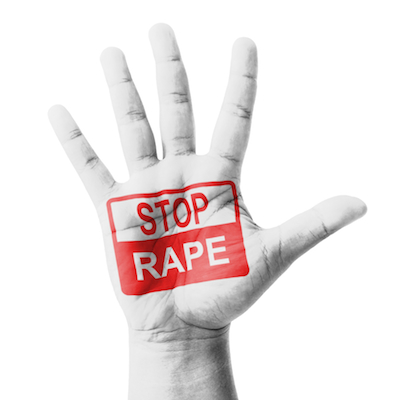Nation’s Largest Rape-Victim Advocacy Group: It’s Not “Rape Culture”

Photo | Shutterstock.com
At long last, there’s been a heartening development in the escalating war between anti-“rape culture” activists and due-process advocates.
In case you haven’t been following along, college students have been filing Title IX complaints with the Department of Education at a furious rate, claiming their schools have been lax in prosecuting what Vice President Joe Biden once termed an “epidemic of rape” on campuses; others have been shouting that the Department of Education’s rules for investigating sexual assaults trample the rights of the accused to fair treatment and hearings; and for the first time, a male student’s claim that his school’s judiciary board violated his Title IX rights by expelling him and using him as a scapegoat to appease the feds has been allowed to proceed in a federal court.
Now into the fray comes the strangest player of all: RAINN, the Rape, Abuse & Incest National Network, which just announced that it has sent a 16-page letter to the task force appointed by the President to address the campus-sexual-assault problem, outlining its recommendations on what should be done. And RAINN — the “nation’s largest anti-sexual violence organization,” according to its website, says “rape culture” has nothing to do with it.
Or, as RAINN put it in the letter, “In the last few years, there has been an unfortunate trend towards blaming ‘rape culture’ for the extensive problem of sexual violence on campuses. While it is helpful to point out the systemic barriers to addressing the problem, it is important to not lose sight of a simple fact: Rape is caused not by cultural factors but by the conscious decisions, of a small percentage of the community, to commit a violent crime.”
The letter is an incredibly encouraging sign in a battle that till now has just had both sides digging in harder. It points out that the “epidemic” is the work of a very small minority of college men — perhaps three percent — and advises against “focusing prevention messaging towards potential perpetrators,” noting the ineffectuality of programs attempting to “redefine masculinity.” Schools, RAINN says, have fallen victim to “an inclination to focus on particular segments of the student population (e.g., athletes), particular aspects of campus culture (e.g., the Greek system), or traits that are common in many millions of law-abiding Americans (e.g., ‘masculinity’), rather than on the subpopulation at fault: those who choose to commit rape. This trend has the paradoxical effect of making it harder to stop sexual violence, since it removes the focus from the individual at fault, and seemingly mitigates personal responsibility for his or her own actions.”
RAINN advocates that campus judicial inquiry boards partner with law enforcement “from the time of report to resolution,” since right now they’re making a botch of their investigations: “these internal boards were designed to adjudicate charges like plagiarism, not violent felonies. The crime of rape just does not fit the capabilities of such boards. They often offer the worst of both worlds: They lack protections for the accused while often tormenting victims.”
And in a move sure to give rape activists fits, RAINN even dips a toe into the murky waters of personal responsibility on the part of college women, urging “risk-reduction messaging” that teaches them what behaviors increase the likelihood they’ll become victims of sexual assault:
To be very clear, RAINN in no way condones or advocates victim blaming. Sexual assault is a violent crime and those who commit these crimes are solely responsible for their actions. That said, we believe that it is important to educate members of a campus community on actions they can take to increase their personal safety. In fact, we believe it’s irresponsible not to do so.
What a breath of fresh air.
It’s hard to find fault with RAINN’s bona fides; its letter notes the organization’s two decades of work on behalf of the victims of sexual assault. Its recommendations rely on “a survey it issued to 100,000 supporters” and “an overwhelming number of responses from survivors, victim advocates, law enforcement personnel, campus officials and faculty members, prosecutors, and others,” according to a press release. And they’re based on scientific research into what has actually been proven to help deter campus sexual assaults, not on political agendas or tales of victim outrage.
They’re not going to make everybody happy — especially not the highly lucrative risk-management industry that’s sprung up to advise colleges on how to cover their arses when it comes to sexual assault. Nor will they please the many, many dog-and-pony shows that travel the nation, getting paid by your tuition dollars to present programs proven not to work at colleges trying to do the right thing. But they’re a step back from what was beginning to look like a nuclear standoff, and toward what all parties concerned really want: a safer campus environment.
Follow @SandyHingston on Twitter.


